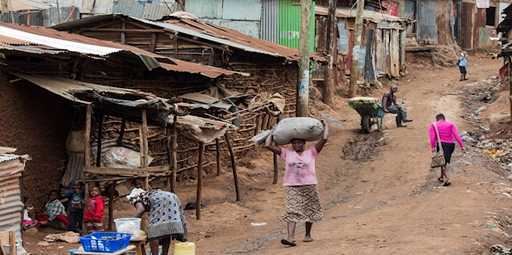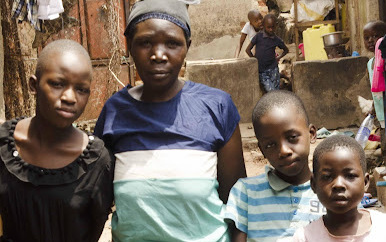Effects
Mental health illnesses can impinge on relationships, income, physical health, and everyday living. Research shows that families with dads that have mental illnesses, especially during early childhood, tend to have children who have difficulty in managing emotions and behaviours. Persistent mental illnesses such as stress can also trigger people into destructive behaviour like domestic violence, crime, brutality, reckless sexual behaviour, and substance abuse. Additionally, those living with a mental illness can easily drift into poverty due to increased healthcare expenditure, stigma and disability.

Image by the Century Foundation
"Research shows that religion and spirituality positively impact mental health by helping a person tolerate stress, anxiety, and depression through peace, gratitude, purpose, and forgiveness."
Treatment
In Uganda, people living with mental illness, especially severe cases such as schizophrenia, bipolar mood disorder and epilepsy, are often pilloried, spurned, and barred from mainstream society due to social norms as signs of demon possession. They are deprived of treatment owing to ignorance about the scope of mental health problems, stigma against mental illness patients and available treatments. Access to treatment is lacking, and those that need it the most are often sent to jails with no assessment from a psychiatrist or mental health worker. Family, religious communities and the government have major roles in managing mental health problems in Uganda in the following ways.
Family
Family and friends are encouraged to look out for warning signs such as severe mood changes, behavioural and communication changes, lack of interest in usual activities, trouble sleeping and waking up, a decline in performance, poor concentration, and physiological change amongst their loved ones. They need to establish trust and openly talk to mentally ill patients about how they feel and get them professional help physically or remotely. It is also vital to recognize paternal mental health and encourage fathers, and all men, to seek mental health care when they are struggling.
It is a good culture to set a social media schedule, especially during this COVID -19 isolation since social networks can be harmful to a people’s mental health. Family and friends need to give full attention to their loved ones through constant live communication and entertaining family activities and trips to help reduce stress and cope with mental disorders. In addition, patients should be encouraged to make healthy changes such as reducing alcohol intake, healthy exercises, meditation, sleeping more, taking a vacation and eating a balanced diet. Patients must understand the source of their mental illness and work on healthy thought patterns with a support network via self-help groups, friends and family to support everyday living and reduce the risk of isolation and self-harm.
Religion
Research shows that religion and spirituality positively impact mental health by helping a person tolerate stress, anxiety, and depression through peace, gratitude, purpose, and forgiveness. Faith communities help people initiate social connections, which creates a sense of belonging and offers a trustworthy and safe environment. Religious communities are encouraged to sensitize their congregation against discrimination of mentally ill patients by showing compassion during their worst times and recommending treatment centres. This is because their disorders do not define them; individuals deserve compassion and understanding despite their conditions.
Government
The majority of Uganda’s population is rural, illiterate and still anchors negative cultural beliefs towards mental health. The government of Uganda should allocate resources for mobilisation and sensitisation of communities about mental health treatment and train professional mental health workers through appropriate policies and facilities. Government should also place an appropriate legal and regulatory framework to address the accessibility and affordability of mental health care by marginal groups like children, widows and people with disabilities.
Mental health interventions improve the economic conditions of affected households, as evidenced in northern Uganda, where group inter-personal therapy administered by local non-specialist facilitators made substantial progress in depression and living conditions of patients. The government of Uganda should fund health interventions that boost mental health, such as phone-in calls, radio programmes, group therapy and tele-counselling.









0 Comments